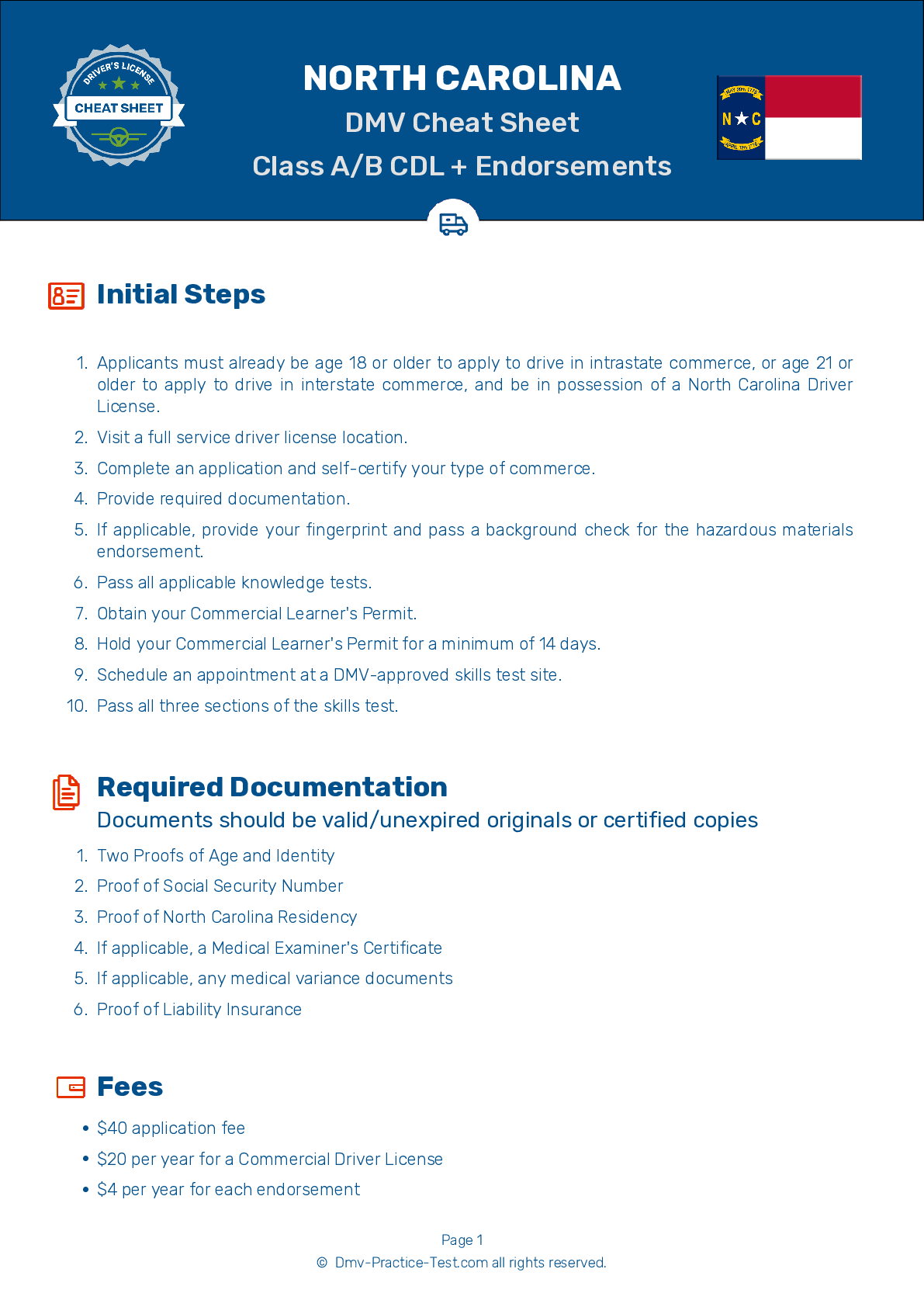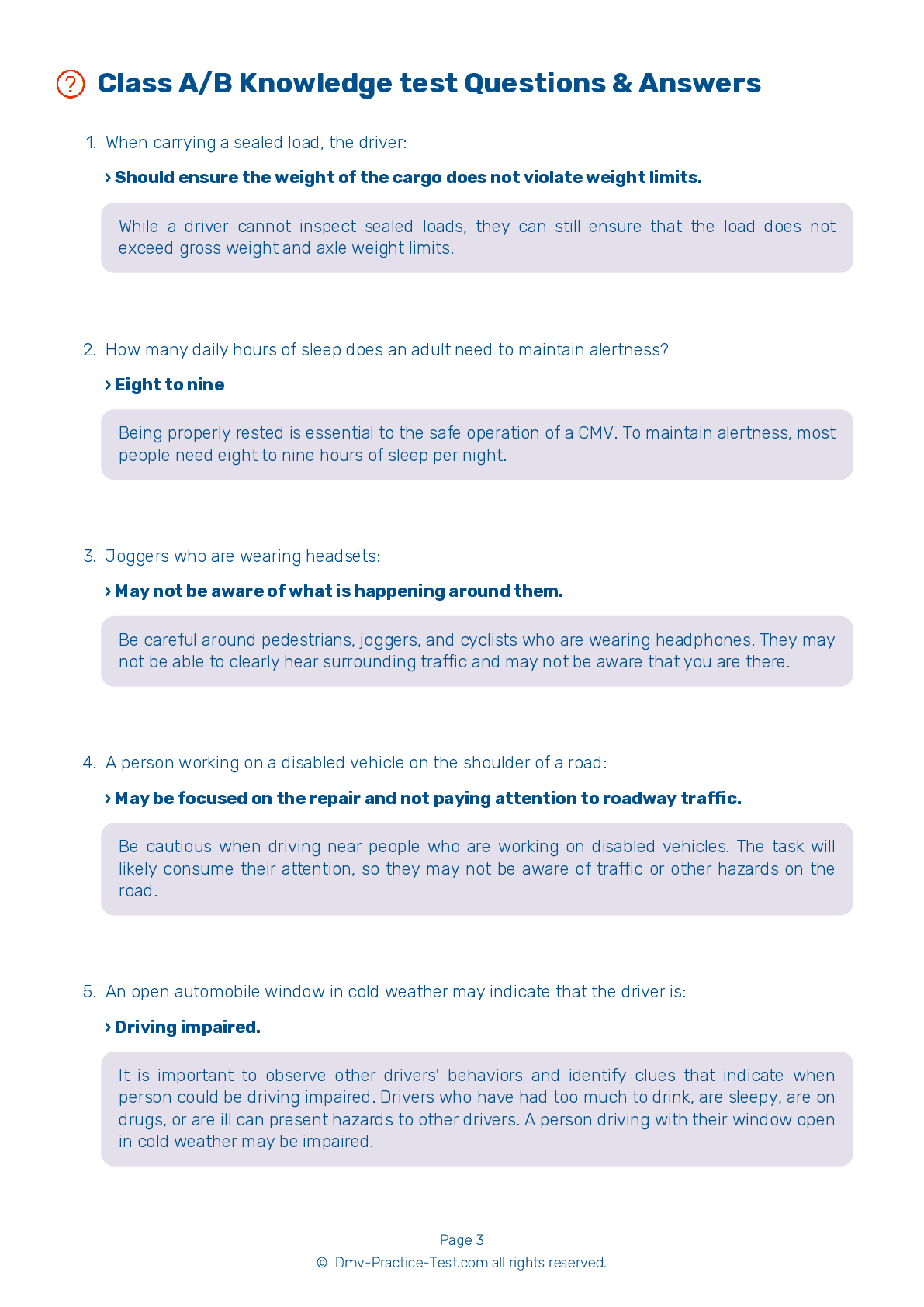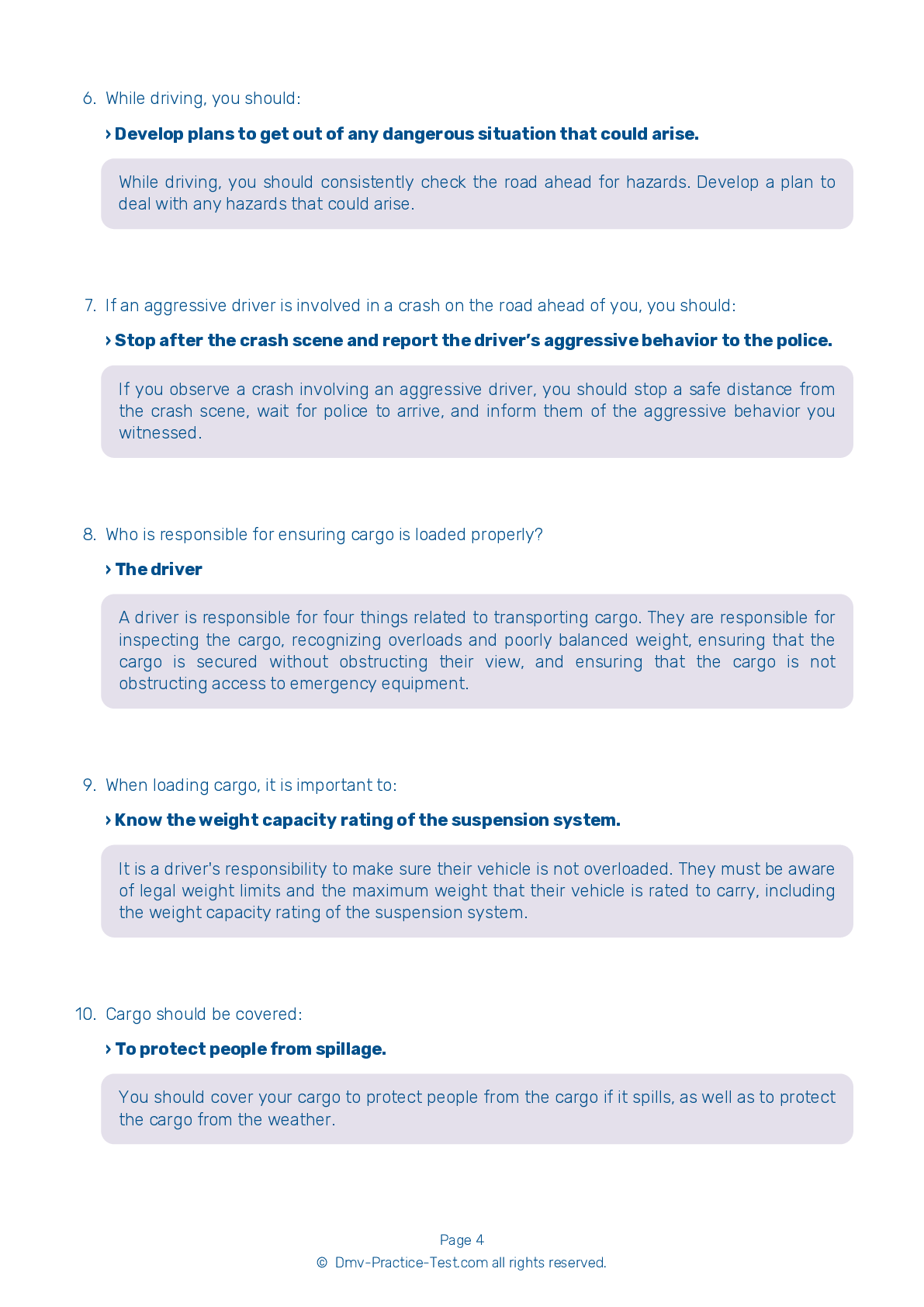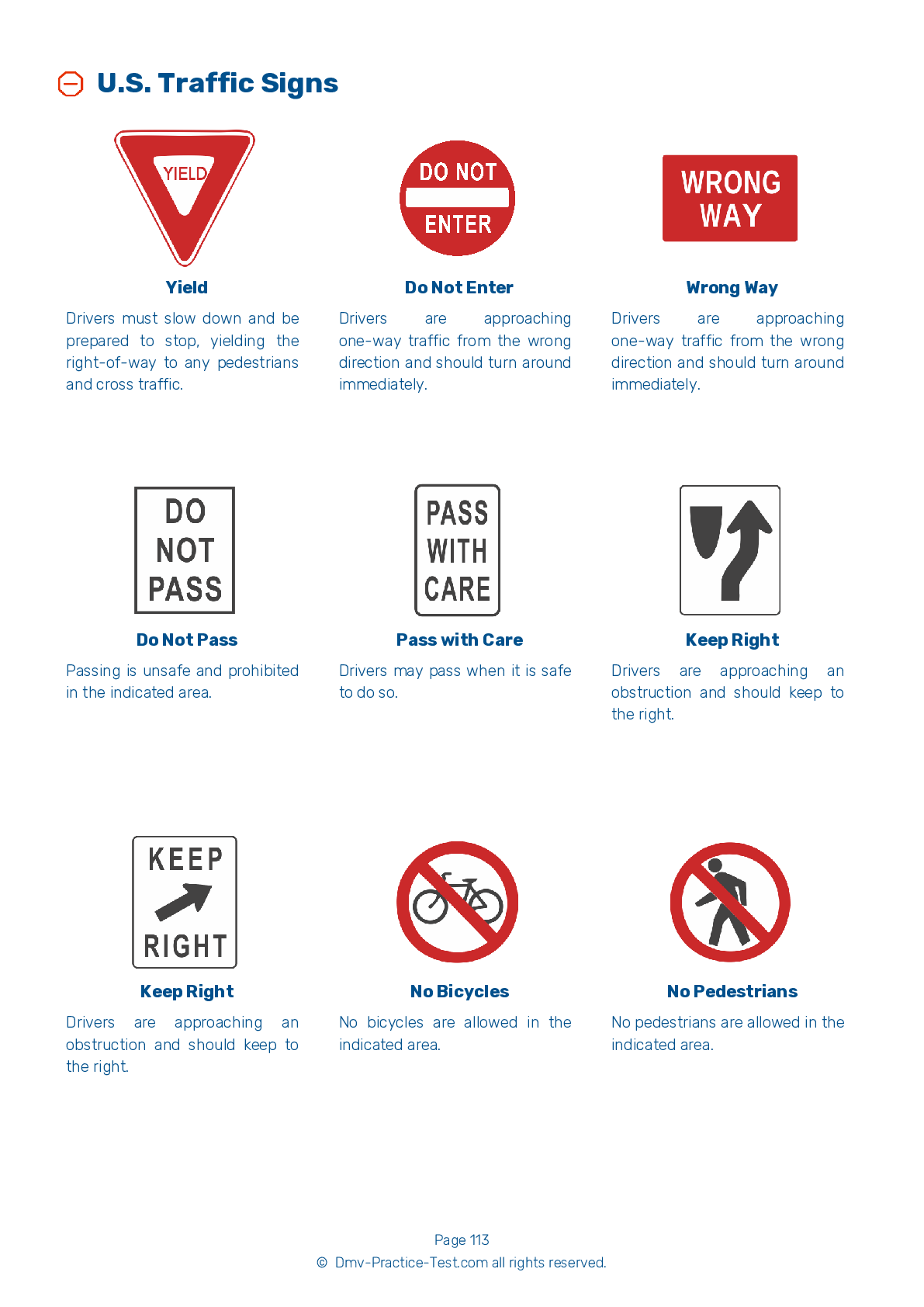Class B Driving Test | North Carolina 2026 #1 Page 6 of 7
Train for FREE online with our North Carolina class B license test. The official exam test consists of several obligatory parts, with all of them checking your knowledge of different blocks of road rules. If you need to obtain a NC CDL class B permit in 2026, practice as much as possible. Free sample tests published on our website will help you check and improve your knowledge and boost your grades. Please bear in mind that CDL class B requirements may vary from state to state.
36 . Distracted driving:
To reduce the risk of distraction, do not engage in complex or emotionally intense conversations while driving. Pre-programming radio stations before your trip and avoiding eating, drinking, or smoking while at the wheel can also help you avoid becoming distracted while driving. Remember that mental distractions that take your attention away from the task of driving can be just as dangerous as physical distractions.
37 . While operating a CMV:
A safety belt is your best defense in the event of a collision. You must always wear a safety belt while operating a CMV.
38 . Do not operate a vehicle if any brake drums have cracks that are larger than ____ of the width of the friction area.
Before beginning a trip, it is important to check the brake drums during your walk-around inspection. It is unsafe to drive if any brake drum has a crack more than one half of the width of the friction area.
39 . When stopping:
Press the brake pedal down smoothly and gradually every time you slow or stop. The amount of brake pressure you need to apply depends on the speed of your vehicle and how quickly you need to stop.
40 . To receive a hazardous materials endorsement, an applicant will be required to supply:
To obtain a hazardous materials endorsement, you will be required to submit your fingerprints and undergo a TSA background check.
41 . If approaching a railroad crossing while driving a placarded vehicle, you should always:
If approaching a railroad crossing while driving a transit bus, school bus, or placarded vehicle, special procedures apply. Before crossing, stop your vehicle within 50 feet of, but not less than 15 feet from, the nearest rail. Activate your four-way flashers while crossing. Do not stop, change gears, or change lanes while any part of your vehicle is proceeding across the tracks.
42 . Why are multi-speed axles and auxiliary transmissions used?
On many vehicles, multi-speed rear axles and auxiliary transmissions are used to provide extra gears.
See the exact questions that will be on the 2026 North Carolina DMV exam.
99.2% of people who use the cheat sheet pass the FIRST TIME
Lillian MCcranie explains how our CDL study guide was helpful in passing the exam and recommends it to everyone.
Cameron tells us how he purchased the CDL exam, and found it to be a useful tool which helped him pass the exam and find a job.



